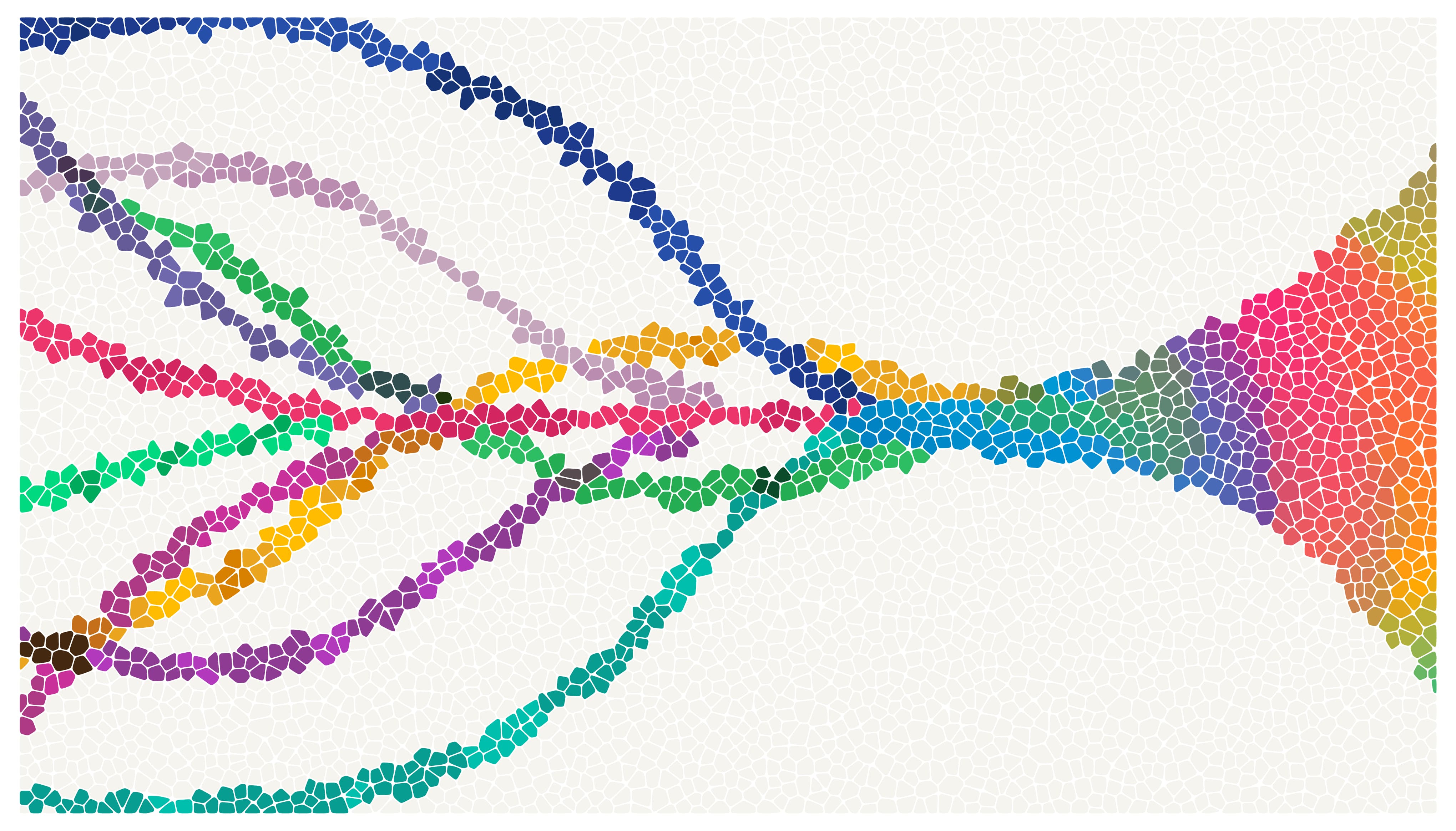Background
Overview
This ECLAC project is funded by the Spanish Agency for International Development Cooperation (AECID) and is implemented in coordination with its Training Center in Santa Cruz de la Sierra. Its objective is to position and promote social cohesion within the social and public policy agenda of the region, and to monitor the analytical, measurement, and social cohesion policies’ framework in Latin America.
Background
What keeps societies together? What identifies and motivates people to coexist voluntarily without the need for permanent external coercion or immediate material interest?
In times of great uncertainty, of cascading crises, and of challenges to societal sustainability, social cohesion takes a central position in the path of Latin American and Caribbean countries towards a sustainable development that leaves no one behind.
In addition to a modest performance in terms of economic and social progress, as well as some setbacks in Latin America’s sustainable development in recent years, there is a high level of social unrest, which has been expressed through distrust, polarization, and even social upheavals, while the coronavirus pandemic inaugurated a health, social, and economic crisis whose consequences are still felt.
Likewise, multiple political and violence-related conflicts have led to human rights violations in the region, while the increase in interregional and intraregional migration has caused tension in many countries. The effects of climate change and natural disasters that periodically affect the region have also been felt, especially by the most vulnerable groups.
These transformations and impacts affect people’s daily lives, as well as the structures that make up society and, therefore, social cohesion. In this way, incorporating the notion of social cohesion into the horizon of the social agenda aims to promote the implementation of policies that are oriented at social well-being and democratic governance, that promote equality-based social relations and the effective enjoyment of rights, and that build a sense of belonging and are directed towards the common good on that basis.
The Project
Since 2018, ECLAC, together with the Training Center of the Spanish Cooperation in Santa Cruz, Plurinational State of Bolivia (CFCSZ), within the framework of the INTERCOONECTA initiative (Spanish Cooperation Plan for Knowledge Transfer, Exchange and Management in Latin America and the Caribbean), has worked on advancing the analysis and discussion of social cohesion in the region. This has been carried out hand in hand with two Knowledge for Development Projects, "Analysis of inclusion and social cohesion in Latin America and the Caribbean in light of the social pillar of the 2030 Agenda" (2018-2022) and "Social cohesion policies for inclusive social development in Latin America: monitoring, challenges, and opportunities in an era of uncertainties" (2023-2025).
The objective of the ongoing project is to position and promote social cohesion within the social and public policy agenda of the region, and to monitor the analytical, measurement, and social cohesion policies’ framework in Latin America. This objective is sought to be achieved through: i) analysis and exchange of concrete experiences regarding policies for social cohesion and their institutional framework; ii) updating and improving indicators related to the measurement of social cohesion, and iii) establishing dialogue processes and exchanges of experiences in the region that engage with Spain and the European Union, aiming in this way to enrich the debates and policy agenda in Latin America.
To achieve this, the following actions will be developed within the framework of the project:
- Promoting dialogue processes through idea labs, exchanges of experiences on social inclusion and social cohesion policies, meetings with governments and key social actors, and the dissemination of innovative material.
- Updating and expanding the indicators’ database regarding the measurement of social cohesion in the region, in order to have an up-to-date overview of social cohesion.
- Delving deeper into the analysis of successful social cohesion policies in the region and in Europe, through the preparation of a document containing innovative experiences in the public and social agendas of both regions regarding social cohesion.
- Positioning the analysis of social institutional frameworks as a central axis to understand and advance towards greater social cohesion, through the publication of a regional study on social institutional frameworks of social cohesion policies.
- Developing a second regional panorama of social cohesion in Latin America and the Caribbean, based on a revisited approach to the concept through new indicators and updated data at least until the year 2022-2023, taking into account the impact of the pandemic and the aforementioned crises.
The analytical, measurement, and policy framework of social cohesion in Latin America
Social cohesion is understood as the ability of a society and its democratic institutions to promote equality-based social relations and, on that basis, to generate a sense of belonging and an orientation towards the common good in a way that is perceived as legitimate by its members. To achieve this, within the framework of a rule of law and a quality democracy, it requires the presence of some enabling elements: guarantees of well-being, the active promotion of a culture of equality, and mechanisms for reducing inequalities, for recognition, for participation, for peaceful conflict resolution, and for adaptation to changes.
In turn, social cohesion policies are those that contribute to strengthening such enabling elements, or to mitigate the negative impacts of the numerous disruptive factors that affect them. In this task, various public policy areas intervene, especially social protection systems, human capacity-building systems, social and labor inclusion policies, affirmative action policies, and anti-discrimination measures. In the field of democratic governance, mechanisms for recognition, participation, and conflict resolution stand out, as well as open and participatory government policies, and mechanisms for accountability and efficiency at all levels.
This measurement framework systematically combines quantitative and qualitative indicators at the national level, and is organized in three pillars (social and labor inclusion gaps, institutional framework gaps, and sense of belonging gaps) which seek to explain the multiple dimensions of social cohesion, from the presence of guarantees of well-being and a quality democracy, to the presence of equality and trust-based social relations.


